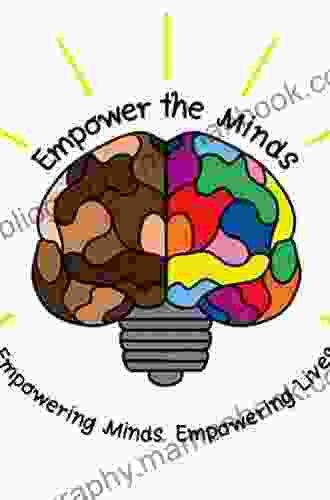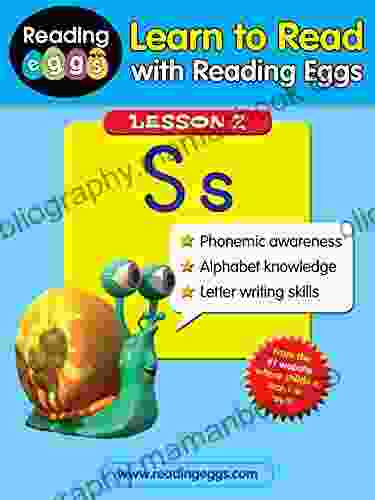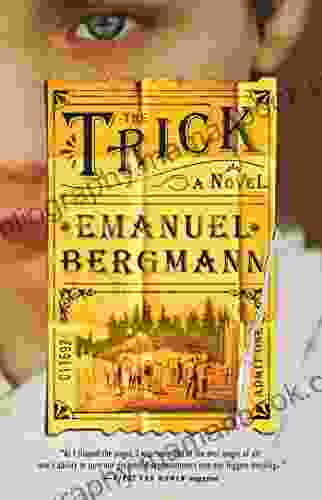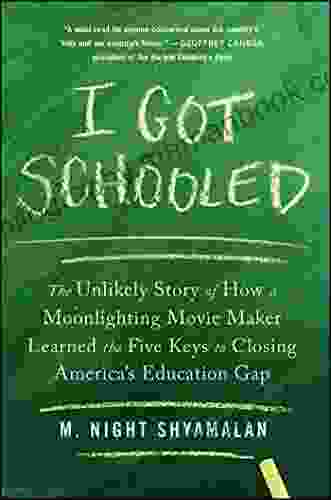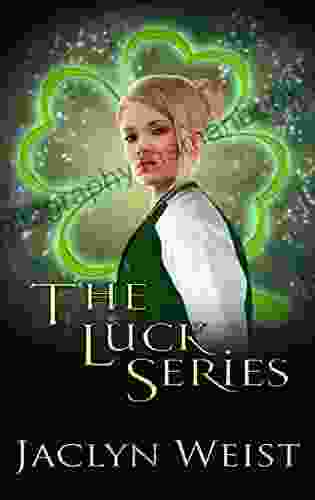Nurturing Young Minds: A Comprehensive Guide to Early Childhood Math Routines

Laying the foundation for mathematical success begins in early childhood. Establishing math routines helps young minds grasp fundamental concepts, develop problem-solving skills, and foster a love of learning. This guide provides a comprehensive overview of the importance, benefits, and implementation of math routines in early childhood education.
4.6 out of 5
| Language | : | English |
| File size | : | 23393 KB |
| Text-to-Speech | : | Enabled |
| Screen Reader | : | Supported |
| Enhanced typesetting | : | Enabled |
| Word Wise | : | Enabled |
| Print length | : | 251 pages |
The Importance of Math Routines
- Cognitive Development: Math routines enhance cognitive abilities such as problem-solving, critical thinking, and reasoning.
- Number Sense: Routines introduce number recognition, counting, and number relationships.
- Spatial Reasoning: Activities like shape sorting and block building develop spatial awareness and visual perception.
- Problem-Solving Skills: Math routines present challenges that encourage children to think critically and find solutions.
- Mathematical Language: Routines introduce mathematical vocabulary and foster communication skills.
Age-Appropriate Math Activities

Infants (0-12 months)
- Sensory play with different textures and shapes
- Counting objects during feeding or diaper changes
- Singing songs with counting lyrics
Toddlers (1-3 years)
- Shape sorting and matching
- Number recognition and counting up to 10
- Playdough activities involving rolling, shaping, and counting
Preschoolers (3-5 years)
- Number recognition and counting up to 20
- Simple addition and subtraction
- Measurement activities using cups, rulers, and scales
- Geometry concepts like shapes and patterns
Implementing Math Routines
- Establish a Regular Time: Dedicate specific times each day for math activities.
- Make it Engaging: Use games, songs, stories, and hands-on materials to make learning fun.
- Integrate into Daily Activities: Incorporate math concepts into everyday experiences, such as counting toys while cleaning up.
- Provide Manipulatives: Use tools like blocks, beads, and counting cubes to aid understanding.
- Encourage Communication: Talk about math concepts and ask children questions to encourage their thinking.
Benefits of Play-Based Learning
Play is a natural and effective way for children to learn. Math routines can be seamlessly integrated into play activities, providing opportunities for:
- Exploration and Discovery: Children experiment with different math concepts through play.
- Problem-Solving: Play scenarios present challenges that foster critical thinking.
- Collaboration and Communication: Children interact with peers and learn through cooperative play.
- Engagement and Motivation: Play makes learning enjoyable and sparks a desire to know more.
Early childhood math routines play a vital role in fostering mathematical development and preparing children for future academic success. By implementing age-appropriate activities, integrating math into everyday experiences, and embracing play-based learning, educators and parents can create a thriving environment where young minds flourish and embrace the wonder of mathematics.
4.6 out of 5
| Language | : | English |
| File size | : | 23393 KB |
| Text-to-Speech | : | Enabled |
| Screen Reader | : | Supported |
| Enhanced typesetting | : | Enabled |
| Word Wise | : | Enabled |
| Print length | : | 251 pages |
Do you want to contribute by writing guest posts on this blog?
Please contact us and send us a resume of previous articles that you have written.
 Top Book
Top Book Novel
Novel Fiction
Fiction Nonfiction
Nonfiction Literature
Literature Paperback
Paperback Hardcover
Hardcover E-book
E-book Audiobook
Audiobook Bestseller
Bestseller Classic
Classic Mystery
Mystery Thriller
Thriller Romance
Romance Fantasy
Fantasy Science Fiction
Science Fiction Biography
Biography Memoir
Memoir Autobiography
Autobiography Poetry
Poetry Drama
Drama Historical Fiction
Historical Fiction Self-help
Self-help Young Adult
Young Adult Childrens Books
Childrens Books Graphic Novel
Graphic Novel Anthology
Anthology Series
Series Encyclopedia
Encyclopedia Reference
Reference Guidebook
Guidebook Textbook
Textbook Workbook
Workbook Journal
Journal Diary
Diary Manuscript
Manuscript Folio
Folio Pulp Fiction
Pulp Fiction Short Stories
Short Stories Fairy Tales
Fairy Tales Fables
Fables Mythology
Mythology Philosophy
Philosophy Religion
Religion Spirituality
Spirituality Essays
Essays Critique
Critique Commentary
Commentary Glossary
Glossary Bibliography
Bibliography Index
Index Table of Contents
Table of Contents Preface
Preface Introduction
Introduction Foreword
Foreword Afterword
Afterword Appendices
Appendices Annotations
Annotations Footnotes
Footnotes Epilogue
Epilogue Prologue
Prologue Jacob Mchangama
Jacob Mchangama Maisha T Fisher
Maisha T Fisher Gretta Curran Browne
Gretta Curran Browne Gabriel E Udemude
Gabriel E Udemude Clem Martini
Clem Martini Debora Sirbu
Debora Sirbu Dessi Parrish
Dessi Parrish Daniel Jesse
Daniel Jesse Victor Hugo
Victor Hugo David Dean Barrett
David Dean Barrett Matt Larkin
Matt Larkin Rose L Colby
Rose L Colby Misha Collins
Misha Collins Lee A Westberry
Lee A Westberry Meredith Rusu
Meredith Rusu Patricia Kirkpatrick
Patricia Kirkpatrick Heinrich Von Kleist
Heinrich Von Kleist Kanan Makiya
Kanan Makiya William Alan Webb
William Alan Webb Ian Mccurrach
Ian Mccurrach
Light bulbAdvertise smarter! Our strategic ad space ensures maximum exposure. Reserve your spot today!

 Jermaine PowellUnleashing Young Mathematical Minds: Delving into Competitions for Aspiring...
Jermaine PowellUnleashing Young Mathematical Minds: Delving into Competitions for Aspiring... Corbin PowellFollow ·8.2k
Corbin PowellFollow ·8.2k Garrett PowellFollow ·13.5k
Garrett PowellFollow ·13.5k Samuel WardFollow ·10.8k
Samuel WardFollow ·10.8k Leo TolstoyFollow ·3.7k
Leo TolstoyFollow ·3.7k Dakota PowellFollow ·18.7k
Dakota PowellFollow ·18.7k George R.R. MartinFollow ·12.4k
George R.R. MartinFollow ·12.4k Shawn ReedFollow ·18.4k
Shawn ReedFollow ·18.4k José MartíFollow ·10.6k
José MartíFollow ·10.6k

 Patrick Rothfuss
Patrick RothfussHow to Make a Million Dollars: No Secrets
Making a million dollars...
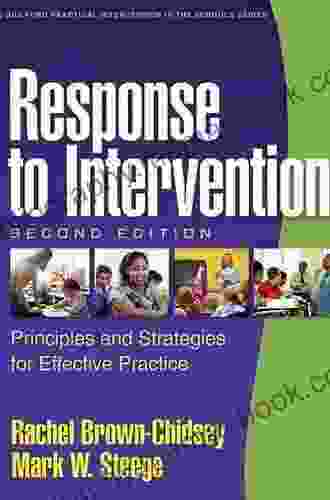
 Robert Heinlein
Robert HeinleinResponse to Intervention, Second Edition: RTI in Practice
A Comprehensive Resource for Educators and...

 Timothy Ward
Timothy WardUnravel the Gripping Assassination Thriller Bursting with...
Prepare yourself for a...
4.6 out of 5
| Language | : | English |
| File size | : | 23393 KB |
| Text-to-Speech | : | Enabled |
| Screen Reader | : | Supported |
| Enhanced typesetting | : | Enabled |
| Word Wise | : | Enabled |
| Print length | : | 251 pages |


